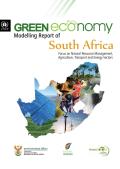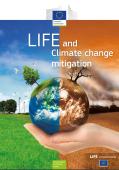
Long-lived infrastructure is inherently exposed to climate risks through its longevity, irreversibility and high initial capital cost. Major transport infrastructure is often designed for a lifetime measured in many decades and may be operational in a future climate that will be significantly different to the historical climate commonly used for planning and design. This policy brief focuses on port infrastructure in sub-Saharan Africa. It investigates the climate change risks, the use of climate services in decision-making and makes recommendations for actions to enhance the resilience of port infrastructure. It summarises a more comprehensive paper prepared to support the scoping phase of the Future Climate for Africa (FCFA) programme for the ports sector.

Green growth and transport combines several different concepts that are central to sustainable mobility, including sustainable economic activity, reduced environmental impact and sustained growth in high quality jobs. It attempts to balance the importance of economic growth, with environmental damage and social priorities through assessing positive actions that can be taken by a wide variety of public and private stakeholders. It has arisen out of the concern over the use of non-renewable resources in transport, increasing emissions of carbon and other pollutants, and the expected levels of growth in mobility over the next 40 years. But it also acknowledges the importance of transport to the economy, and its role in helping to create jobs, improving levels of productivity and output, and in promoting agglomeration benefits. This means that transport should be efficient, but at the same time make less demand on the environment through less use of resources, through recycling and reuse of materials, and through embracing a life cycle perspective.
This paper, produced through the New Climate Economy Cities Research Programme, focuses on one central aspect of urban development: transport and urban form and how the two shape the provision of access to people, goods and services, and information in cities. The more efficient this access, the greater the economic benefits through economies of scale, agglomeration effects and networking advantages. This paper discusses how different urban accessibility pathways impact directly on other measures of human development and environmental sustainability. It also presents the enabling conditions for increasing accessibility and low-carbon mobility in cities.
